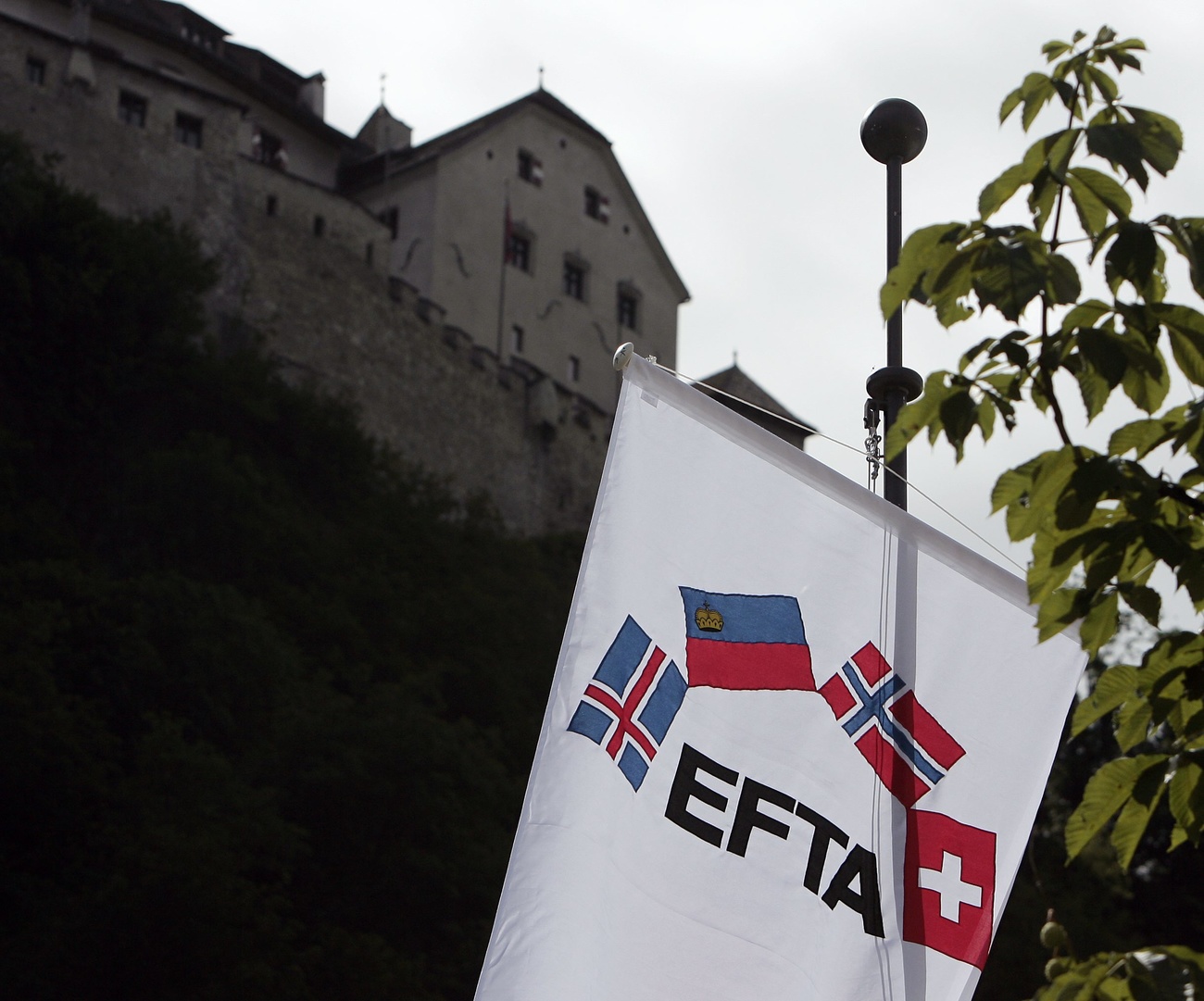Switzerland and EEA membership: not as simple as it sounds

As relations with Brussels remain complicated, some suggest that Switzerland could fix its woes by joining the European Economic Area (EEA). But would EEA members be happy about this?
Thirty years after Swiss voters said “no” to the EEA, the topic is back on the table. The centrist Liberal Greens plan to table a motion to pressure the government to negotiate Swiss membership in the 30-member European club, according to the German-language newspaper SonntagsZeitung.
The Centre party’s Elisabeth Schneider-Schneiter, a foreign affairs specialist, reckons such an idea might be easier said than done: “If we were in the EEA, we wouldn’t have the current problems with the EU [European Union],” she wrote on Twitter on Sunday. “Unfortunately, these debates ignore the fact that EEA states are not keen on membership of either Switzerland or the UK.”
The EEA was established in 1994 in order to extend the EU’s internal market regulations to the four countries of the European Free Trade Association (Switzerland, Liechtenstein, Iceland, Norway). Switzerland had also originally been part of negotiations, but in December 1992 the country’s voters narrowly rejected ratifying the agreement. Today, according to a recent survey commissioned by pro-Europe group NOMES, some 71% of Swiss voters would approve EEA accession.
The EEA is something of a cross between full EU membership and making bilateral deals with Brussels – like those currently governing relations between Switzerland and the EU. EEA membership would grant more comprehensive access to the EU’s internal market, and would also extend to services sectors like banking and insurance. Switzerland would also join the European electricity market. Contrary to EU membership, EEA states have no political say over new EU rules – they must simply adopt them.
Schneider-Schneiter, who is in regular contact with EEA member states via her seat on the Swiss parliament’s EFTA/EU delegation, clarified this point further to SWI swissinfo.ch.
“Even if Switzerland puts in a membership bid, we shouldn’t forget that there are sceptical voices among the EEA countries,” she said. Particularly in Norway, some worry that Swiss membership could disrupt the working balance of the current EEA setup, and that it could provoke similar problems to those Switzerland and the EU are currently experiencing.

More
The vote on European membership that ignited the Swiss People’s Party
Disrupting decision-making
Christian Frommelt, director of the Liechtenstein Institute, a research and training centre, says inserting a new member into the complex structures of the EEA would carry risks for decision-making efficiency.
“And since Switzerland is not the easiest conversation partner on European affairs, I definitely see a danger that accession could threaten the operational functioning of the EEA,” he said.
However, Frommelt doesn’t imagine that Liechtenstein – where his institute is based – would formally block a Swiss membership bid; neither would Iceland or Norway (the other members of the four-member European Free Trade Association, or EFTA).
“Again, the priority of maintaining good relations with Switzerland is clearly more important than any possible concerns about the challenges associated with a Swiss accession,” he said.
The EEA agreementExternal link, however, is a treaty between not just three of the four EFTA states – Norway, Iceland, and Liechtenstein – but also the 27 EU member states; and all 30 countries, via their national parliaments, would have to agree to let the Swiss in.
Beyond the EFTA states, Frommelt doesn’t think any of the other members would block Swiss accession. “But it’s not unthinkable that some would link their approval to concrete demands,” he says. Such demands would most likely be financial – for example, higher cohesion payments, which Bern makes to the EU in return for access to the internal market. However, Frommelt could also imagine the imposition of market protection measures in the form of transitional rules.

More
Deal or no deal: How five non-member states handle EU relations
Success story
Switzerland is not the only wealthy country to run into problems with European rules on free movement, citizenship and market access. Within the EU itself, there is also disagreement.
Thanks to the EEA, however, Iceland, Norway and Liechtenstein have found something of a happy middle ground. For Iceland, the EEA is an attractive alternative to EU membership, which would force it to open up its fishing waters. The same goes for Norway’s oil sector. And Liechtenstein – whose tiny size rules out an EU membership bid – managed to negotiate a special arrangement regarding the free movement of people agreement, via the EEA.
For Switzerland’s small neighbour, EEA membership marked the start of an economic success story for the country. “Liechtenstein is very satisfied with the EEA agreement,” says Frommelt. The same could also be said for Iceland and Norway.
Whether or not Switzerland would fit into this EU “membership-lite” model – which it rejected 30 years ago – remains to be seen.
Adapted from German by Domhnall O’Sullivan

More
Why is Switzerland not in the European Union?

In compliance with the JTI standards
More: SWI swissinfo.ch certified by the Journalism Trust Initiative










You can find an overview of ongoing debates with our journalists here . Please join us!
If you want to start a conversation about a topic raised in this article or want to report factual errors, email us at english@swissinfo.ch.